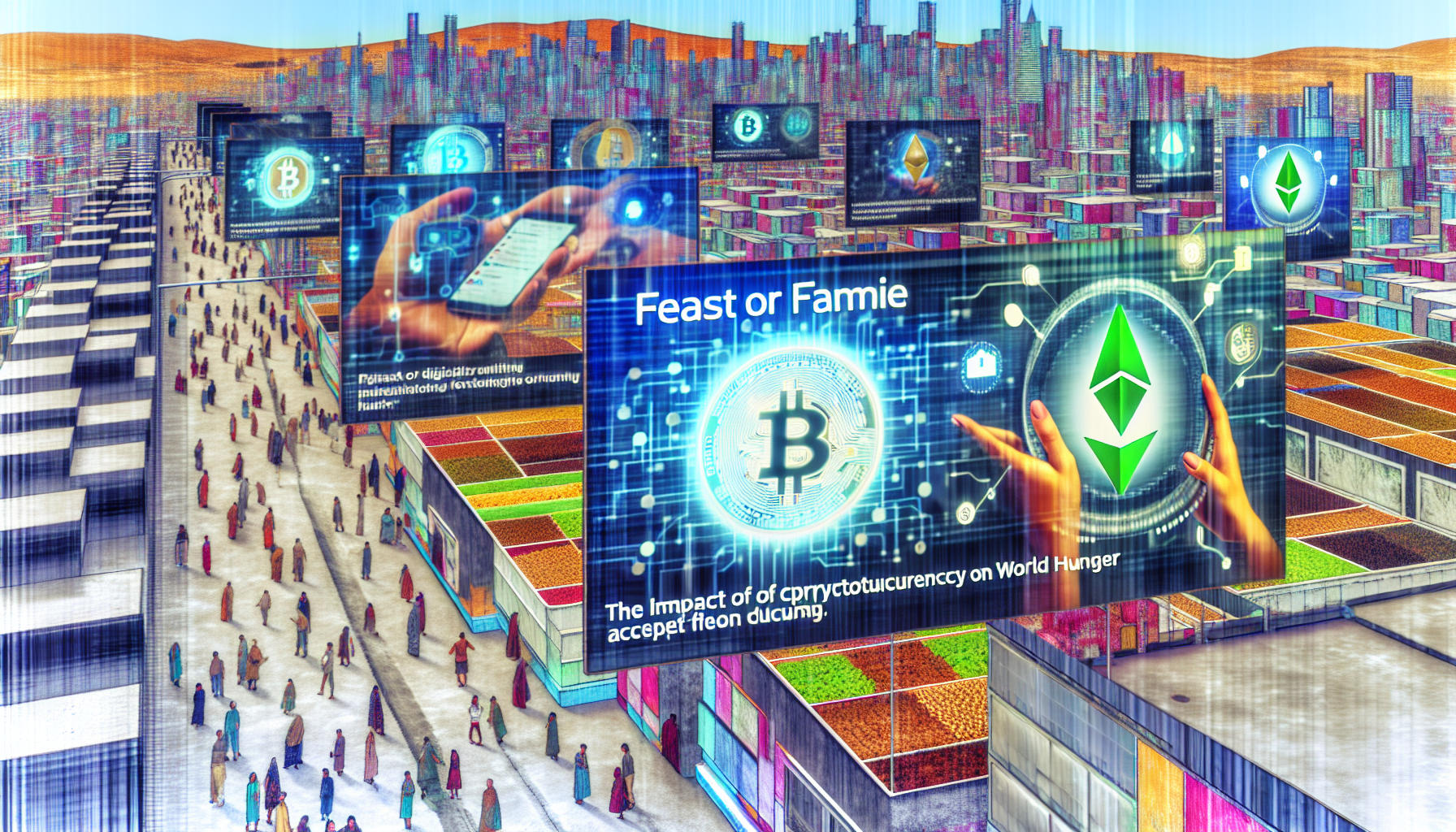Imagine a world where your morning coffee purchase helps fund a farmer’s livelihood halfway across the globe. Where your idle digital wallet balance could be lending resources to drought-stricken communities in urgent need of food and water. This isn’t a far-fetched dream; it’s the burgeoning reality in our cryptocurrency-run society, a place where blockchain and Bitcoin have as much bearing on World Hunger as rains have on crops. In this article, we’ll take a compelling dive into how cryptocurrency is reshaping the fight against global hunger.
How exactly can something as abstract as cryptocurrency tackle something as concrete as hunger? The answer lies in the innovative ways blockchain technology is being leveraged to facilitate transparency, reduce transaction costs, and ensure that aid reaches its intended recipients without the interference of corruption or bureaucracy.
Take the example of blockchain-based smart contracts. These programmable agreements automatically execute when their conditions are met, ensuring funds are distributed to aid organizations or agricultural projects without delays. In Ethiopia, blockchain initiatives have secured land ownership rights for farmers, boosting their economic stability and capacity to produce sustainable food sources for their communities.
The role of cryptocurrencies in facilitating direct donations is nothing short of revolutionary. Platforms now enable individuals to send financial support directly to those in need, bypassing traditional intermediaries that often eat into contributions. In Venezuela, crypto donations provided a lifeline amid hyperinflation, enabling families to purchase food when the local currency plummeted in value.
But, like any technology, cryptocurrency isn’t without its pitfalls. The volatility of digital currencies can be a double-edged sword. Fluctuations in value can amplify the impact of donations but can also lead to significant losses, adding an element of unpredictability to funding streams. And while crypto offers invisibility from political control, this lack of oversight may also result in misuse of funds.
Another concern is the digital divide. Internet access and digital literacy are prerequisites for tapping into crypto’s benefits. Unfortunately, they are not universally available, particularly in the world’s hungriest regions. Investment in tech infrastructure is a critical precursor to harnessing cryptocurrency’s full potential to mitigate hunger.
In crypto cities, digital currencies have spurred the development of sophisticated urban farming technologies and AgriTech ventures. These innovations are powered by investments and crowdfunding facilitated through cryptos, demonstrating how digitized economies can contribute to food self-sufficiency and provide a buffer against food scarcity.
The promise of using cryptocurrency to aid the hungry is compelling, but real-life applications have illuminated the challenges as well. A holistic approach, bridging technological innovations with proactive social policies, would be required to amplify the benefits and mitigate the downsides.
As we grapple with the intricacies of a digital economy, the potential of cryptocurrency to mold a future free from hunger hangs in balance—a testament to human ingenuity but a reminder of the need for compassionate governance. Moving forward, it’s essential that we continue to harness this technology with an eye towards making a tangible impact on the ground. For now, in our society, the crypto revolution offers not just a currency, but a currency of hope for the millions facing hunger every day.
In conclusion, cryptocurrency holds the potential to transform charitable giving, streamline aid distribution, and empower disadvantaged communities—directly impacting the war on hunger. As we stand at the juncture of technological innovation and humanitarian need, our choices today will determine whether the future heralds a feast for the hungry or exacerbates the famine. The power of cryptocurrency in the fight against world hunger beckons to be harnessed wisely and humanely.
